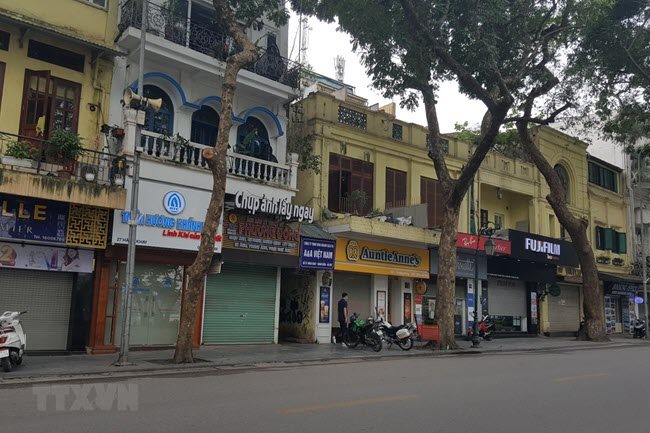HCMC – The ongoing Covid-19 outbreak has caused many disruptions in Vietnam’s economy and real estate market, where retail is among the most affected sectors.
CBRE Vietnam in its Q1-2020 report released on April 7 noted that the total revenue from food and beverages (F&B) and accommodation and tourism services fell by 9.6% and 27.8% year-on-year, respectively. At shopping centers, traffic started dropping in February and was down by 80% as of March.
The decrease in revenue varied among categories, with education receiving no revenue, while F&B, fashion and accessories and entertainment saw revenue dip by 50%-80%.
Some F&B retailers have been caught up in mass shutdowns, including coffee shops and milk tea brands. Some tenants of shopping centers encountered temporary closures but no early terminations were recorded due to rental support from landlords.
Since the Government called on businesses to temporarily halt operations, all landlords announced their shopping centers would be shut down until at least April 15.
Most landlords of shopping centers in HCMC started applying a 10%-30% rent reduction policy to all tenants from March, while a few started in February. A rent reduction of up to 50% was applied for forced shutdowns.
As of the end of Q1, rents for the ground floor and first floor in the CBD and non-CBD fell by 11.4% and 15.9% quarter-on-quarter, respectively. For the upper floors, the drop was more severe. Compared with last year, the rent in the CBD and non-CBD areas dipped by 6.6% and 17.6%, respectively.
In Q1 this year, there were no new projects and total supply remained at the 2019 level, which was 1,050,000 square meters. If the disease is not under control by the second quarter, new supply may only reach 20% of the level forecast last year. Completed and for-lease projects may have to postpone their opening dates.
Unlike the negative situation facing shopping centers due to COVID-19, online retail sales recorded positive growth in the quarter.
According to a Nielsen consumer survey in February, spending on necessities such as dry foods, healthcare and hygiene products increased by an average of 35%-70%.
Online retail sales, despite impressive growth over the past few years, still only account for 4% of total retail sales in Vietnam.
Based on the events in the previous quarter, Vietnam’s online retail showed significant room for further improvement thanks to the country’s young population structure, with 70% of the population connected to internet, which is quite a high level compared with the rest of Asia and the global average.
“From the effects of COVID-19 that we have seen, the local market will require a stronger presence for online platforms and the development of omnichannel strategies that can serve a wider range of consumers and categories and help to push marketing,” remarked Duong Thuy Dung, senior director of valuation, research and consulting for CBRE Vietnam.
Talking about the outlook of the retail sector, CBRE stressed that if the disease can be brought under control by Q2, the vacancy rate in the CBD will likely remain stable until the end of the year, while that in the non-CBD could increase by 1-2 percentage points. Rent in the CBD could fully recover to pre-COVID-19 levels, while rent in the non-CBD could end at 5% below the previous level.
If the disease is still spreading in September, the vacancy rate will rise in both markets, with the non-CBD areas being hit harder, showing an estimated increase of 5-7 ppts. Rent in the non-CBD area on the ground floor and first floor could end at 10% below the previous level, while the CBD’s rents may still fully recover.











